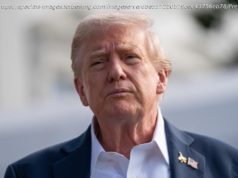Paul-Henri Mathieu, once ranked No. 12 in the world, earned a French Open bid in the qualifying tournament. It was also a victory against his country’s tennis federation.
PARIS — The main draw of the French Open does not begin until Sunday, but raw emotions were already on display Friday when Paul-Henri Mathieu, a 35-year-old Frenchman playing his final year on tour, won his final qualifying match against Denis Kudla.
With more than 1,000 fans packed into tiny Court 6 and long lines of others waiting under a blazing sun in the hope of squeezing inside, Mathieu dispatched Kudla in straight sets, 6-3,6-4, before making it clear what it all meant to him.
He chucked his racket onto his courtside chair, turned to his delighted supporters with arms raised, then pounded his chest three times with his right fist. There was no mistaking the message.
Yes, he had beaten Kudla, but his larger victory was against Bernard Giudicelli and the French Tennis Federation, of which Giudicelli is president. The federation had denied Mathieu a wild-card entry, but Mathieu barged through anyway, winning the necessary three matches in the qualifying tournament.
“It was the best answer I could give after not getting the wild card, ” he said.
Mathieu, who reached No. 12 in 2008, was ranked 119th entering qualifying. After he failed to get a wild card, he posted a statement on his Facebook page saying that he accepted the decision but disagreed with it and found the explanations confusing.
Giudicelli was quoted as saying the federation had withheld the wild card from Mathieu because he had not played Davis Cup matches for France since 2008. Mathieu scoffed at that rationale.
“It doesn’ t matter, ” he said. “I was number 12 in the world. I don’ t understand, and I will never understand. No matter what is explained to me, it is not the right choice.”
The disbursement of wild cards can be contentious, particularly so at this event. Giudicelli baffled many when he announced that the federation would deny the two-time champion Maria Sharapova a wild card after she had served a suspension for doping.
For his efforts, Mathieu will play 10th-seeded David Goffin in the first round. It was suggested that the tournament directors might feature the match on one of the big courts to take advantage of Mathieu’s peaking popularity.
“I don’ t play for them anyway, ” he said. “I play for myself and my family who support me all the time.”
Mathieu’s best result at the French Open was reaching the fourth round, which he accomplished twice. Over the years he has lost here to many in the tennis elite, including the former No. 1 players Lleyton Hewitt, Andre Agassi, Rafael Nadal, Novak Djokovic and Roger Federer.
“This is always a key tournament for me, but I didn’ t have great luck in the draw, ” Mathieu said. “I always lost against great players.”
While the decision to force Mathieu to go through qualifying in his final year on tour hurt his pride and his body, it was a boon to fans who regarded the veteran French player’s matches as a cause célèbre.
The qualifying tournament begins the week before the main draw, and half the Roland Garros grounds are cordoned off, concentrating players and fans in a smaller area and generating a buzz. Spectators fill the outlying courts, often waiting in lines to get inside, and cheers from hotly contested matches can be heard around the grounds.
On Friday, Court 6 was the center of attention. Many of those who could not fit inside watched the match on the main video screen outside Court Suzanne Lenglen.
The fans favored Mathieu with loud chants, and Kudla, a 24-year-old American, felt no ill will toward the spectators.
“It was probably the best atmosphere I’ ve ever played in, ” he said. “It was like Davis Cup. I think there were like 10 people cheering for me. The rest were for him, and that was O. K. I totally understand it. Hey, it’s better than no one being there.”
After he won, Mathieu went to the stands, scooped up his 5-year-old son, Gabriel, and carried him around the court as the fans cheered. Before he left, Mathieu waved at everyone who had sat through the heat to celebrate his special, if grudge-filled, occasion.
“It was very emotional, ” Mathieu said. “I haven’ t had to play the qualies here before. It was very difficult to go through it, but I was very happy to go through. It was not only a big week of tennis for me, it was a big week of emotions.”






